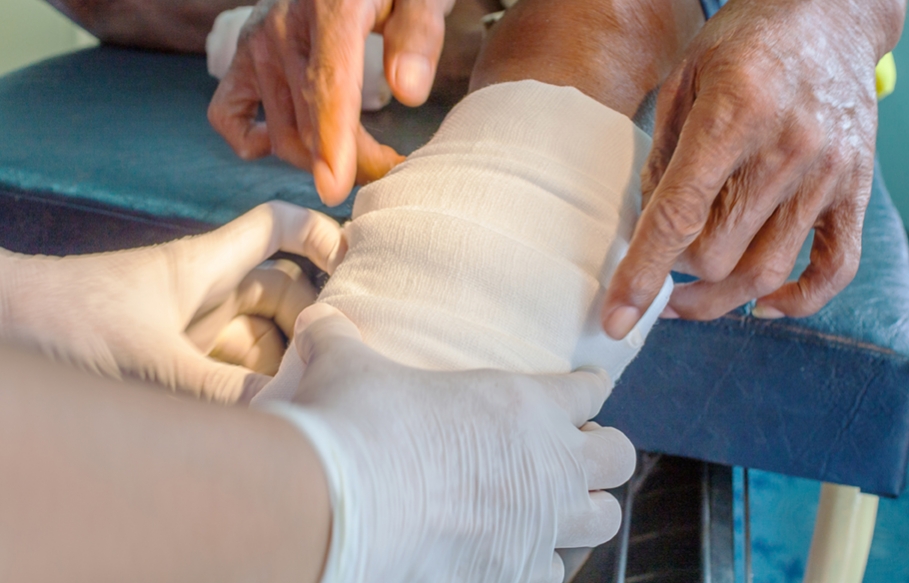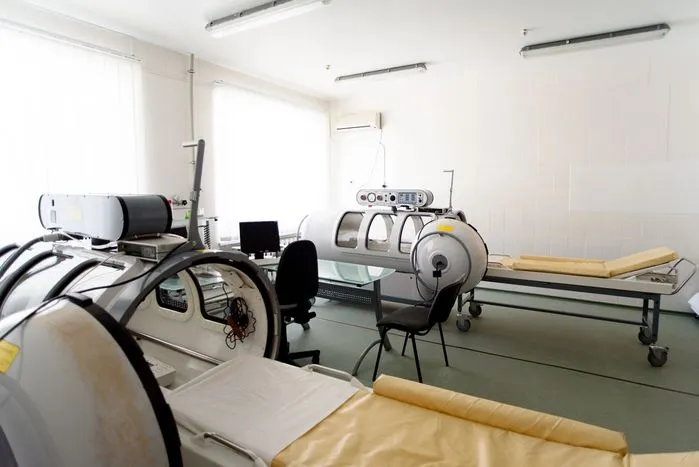Around 4.5 million individuals in the United States are reportedly suffering from chronic wounds. As the incidence of diabetes and obesity continues to grow in an aging population, the burden of chronic wounds is only going to increase. This highlights the need and importance of specialized wound care to serve the population. Wound care is an emerging field in medicine and is expected to grow in a few years. Given the complex nature of chronic wounds, there is an increasing need for highly-skilled, trained individuals in the field of wound care.
Wound care can be a fulfilling and gratifying career choice that will challenge you to the best of your abilities. Wound care medicine is a subspecialty and will require additional training after a basic health degree. While podiatrists have traditionally been at the forefront of wound care, many health professionals are joining ranks in the field of wound care. The following attributes can help wound care professionals thrive in the challenging field of wound care:
Great Listening Skills
The physical exam is often considered pivotal in providing crucial clues to the etiology behind the patient's condition. However, even before doing a physical exam, listening to the patient is of vital importance. Wound care professionals need to be empathetic and active listeners. They need to be able to listen to their patients, as the majority of the time, patients will give clues to what is wrong with them.
A thoroughly obtained medical history can help wound care professionals diagnose the type of chronic wound. This also helps in the effective management and treatment of the patients. Moreover, the act of listening and taking an interest in patients helps to establish rapport and trust. If a patient believes that their wound care professional is not interested in their condition, this can seriously undermine the patient's relationship with their healthcare provider. Active listening conveys respect and helps patients feel that they matter. By being an effective listener, you can inspire confidence in your patients towards your abilities.
Teamwork
Wound care is a multidisciplinary field, and involves collaboration with podiatrists, vascular surgeons, wound care specialist nurses, and assistants. Therefore, being able to function in a team is critically important for wound care professionals. There is great value in teamwork as it has been found to reduce the incidence of medical errors and adverse events. Being able to collaborate with other members in a team allows for better ideas and observations, and improves patient outcomes through shared decision-making.
Perseverance
Chronic wounds are complex, and wound healing can take considerable time. Moreover, the patients may not always respond to the proposed treatment plan which might require using alternate therapies. Wound healing is also dependent on patient factors that are beyond the control of wound care specialists. These include increasing age, the presence of multiple comorbidities, and psychosocial factors that might delay wound healing. Therefore, being able to preserve and provide continued treatment and care to the patients even in the face of insurmountable challenges is essential for wound care professionals. Moreover, unlike some other fields of medicine, patient outcomes are not instantaneous so being comfortable with small gains is important.
Enthusiasm for Life-long Learning
Even though the history of wounds is as old as humanity itself, wound care as a subspecialty is still a relatively new and emerging field. With advances in therapeutics and basic sciences, there is an increasing body of information that wound care professionals should be aware of. New techniques of wound management are constantly emerging, and keeping themselves updated is essential for wound care professionals in providing the best, evidence-based management to patients.
Enthusiasm and passion for constantly learning and relearning can help wound care professionals excel and provide better care. Without a commitment to self-directed learning, wound care professionals might find themselves lagging in cutting-edge treatments. These knowledge gaps can consequently affect patient well-being and outcome.
Attention To Detail
Wound care is complicated and requires extensive attention to detail. There are different etiologies behind similar appearing wounds, and all of them have their own unique treatment strategies. In addition, wound care is a rapidly evolving field and requires clinicians to familiarize themselves with different wound care treatments, and use of high end technology. Being closely attentive to the finer details can help make wound care professionals make an accurate diagnosis which can better guide the treatment plan. Moreover, a keen attention to detail helps clinicians chart the progress of wound healing and allows them to change treatment plans in case the initial treatment strategy is not showing any improvement.
While being able to see the bigger picture is a wonderful quality, a meticulous attention to detail is essential for wound care specialists to provide the best care to their patients. Patients with chronic wounds often have underlying medical problems that can only be picked up by attentiveness to detail.



.webp)

.avif)